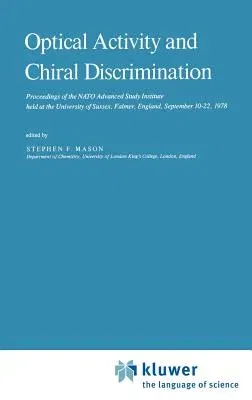Optical Activity and Chiral Discrimination (1979)Hardcover - 1979, 30 April 1979

Qty
1
Turbo
Ships in 2 - 3 days
In Stock
Free Delivery
Cash on Delivery
15 Days
Free Returns
Secure Checkout

Part of Series
NATO Science Series C:
Part of Series
NATO Science Series C: (Closed)
Part of Series
NATO Science Series U
Part of Series
NATO Advanced Study Institutes Series: Series C, Mathematica
Part of Series
NATO Science Series: U
Print Length
372 pages
Language
English
Publisher
Springer
Date Published
30 Apr 1979
ISBN-10
9027709823
ISBN-13
9789027709820
Description
Product Details
Book Edition:
1979
Book Format:
Hardcover
Country of Origin:
US
Date Published:
30 April 1979
Dimensions:
23.39 x
15.6 x
2.24 cm
ISBN-10:
9027709823
ISBN-13:
9789027709820
Language:
English
Location:
Dordrecht
Pages:
372
Publisher:
Series:
Weight:
716.68 gm